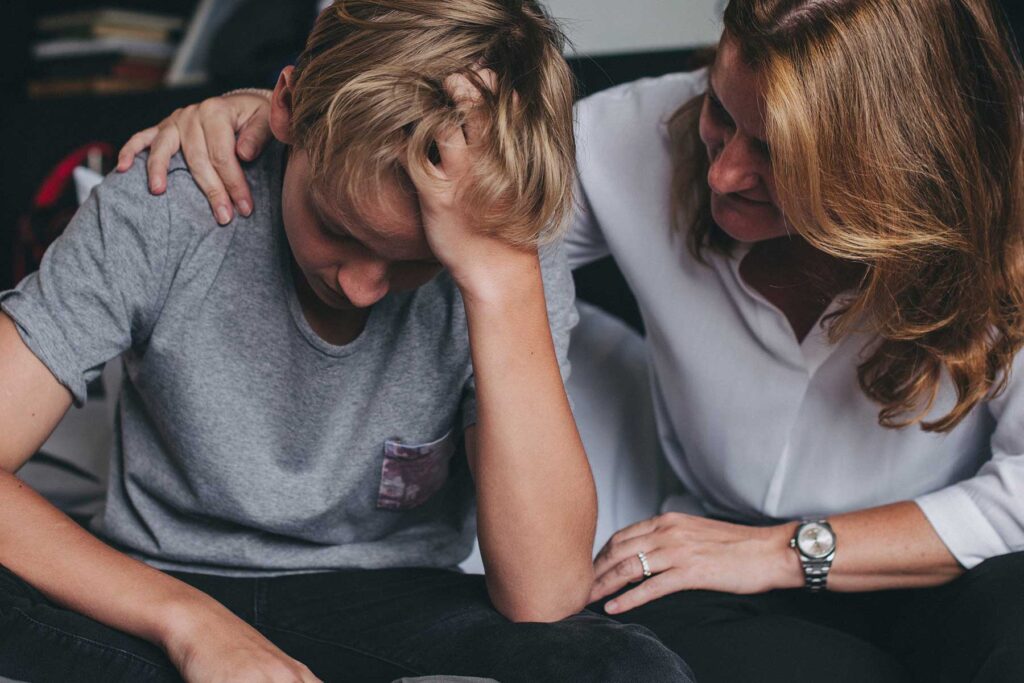Anxiety is a normal part of life, but it can become a problem when it interferes with daily activities and overall well-being. Teens are particularly susceptible to anxiety due to various factors, including hormonal changes, social pressures, and increasing responsibilities. Imagine Spokane is committed to helping you recognize anxiety in your teen and guide you toward appropriate anxiety treatment. By understanding the distinct signs of anxiety in teenagers and the unique challenges both boys and girls face, we can empower families to provide the right support, foster resilience, and contribute to their teenagers’ healthy development.
What Causes Anxiety in Teens?
Teen anxiety can stem from multiple factors, including biological, environmental, and social influences. Biological factors, such as genetic predisposition and hormonal changes, can contribute to a teenager’s anxiety. Environmental factors, including parental expectations, academic pressures, and traumatic events, may exacerbate feelings of stress and anxiety. Social factors, such as peer pressure, cyberbullying, and social media usage, can also amplify teen anxiety.
How to Recognize Anxiety in Your Teen
Recognizing anxiety in teenagers is a vital step toward supporting their mental health and overall well-being. To help you recognize anxiety in your teen, it’s vital to understand the various aspects of anxiety experienced by both boys and girls.
Anxiety in Teen Boys
Anxiety in teen boys is a significant concern that can manifest in various ways, often unique to their experiences. While societal expectations and gender norms may lead some boys to internalize their feelings, it is crucial to recognize and address their anxiety. Some common signs of anxiety in teen boys include:
- Aggression – Teen boys may express their anxiety through aggressive behavior, such as fighting, yelling, or engaging in risky activities.
- Withdrawal – Anxiety may cause teen boys to withdraw from social activities, friends, or family.
- Substance use disorder – Some teen boys may use drugs or alcohol to cope with their anxiety.
- Somatic complaints – Teen boys may report physical symptoms, such as headaches, stomachaches, or muscle tension, due to anxiety.
Understanding the distinct aspects of anxiety in teen boys helps provide appropriate support, promoting healthier coping mechanisms and fostering resilience for their future challenges.
Anxiety in Teen Girls
Anxiety in teen girls is an important issue that requires attention and understanding. Their experiences may lead to distinct manifestations of anxiety, influenced by societal pressures and unique challenges they face. Some common signs of anxiety in girls include:
- Perfectionism – Teen girls with anxiety may feel intense pressure to be perfect in all aspects of their lives, leading to constant worry and stress.
- Social anxiety – Teen girls may focus more on social situations, such as fear of being judged or rejected by peers.
- Self-esteem issues – Anxiety can impact a teen girl’s self-esteem, leading to negative self-talk and a distorted self-image.
- Eating disorders – In some cases, anxiety in teen girls may contribute to developing eating disorders as a way to cope with their feelings.
By acknowledging the specific aspects of anxiety in teen girls and offering tailored support, we can empower them to develop healthy coping strategies and build resilience, paving the way for a more secure and confident future.
Recognize the Signs of Anxiety in Teenagers
Recognizing the signs of anxiety in teenagers is essential for providing timely support and guidance. Pay attention to changes in behavior. If your teen starts displaying any of the signs mentioned above, take note of these changes and monitor their behavior.
Communicate openly, encourage your teen to share their thoughts and feelings with you, and listen actively without judgment. This can help you better understand their anxiety and provide support. If you are concerned about your teen’s anxiety, consult a mental health professional for guidance on the next steps.
Imagine Spokane Is Here To Help
Don’t let anxiety hinder your teen’s growth and development. Imagine Spokane is here to help. Our team of dedicated professionals specializes in supporting teenagers facing anxiety and other mental health challenges. With personalized guidance, resources, and a nurturing community, we empower your teen to overcome their struggles and thrive. Contact us today at 888.384.3143 or online to learn more about our programs and services designed to create a brighter future for our youth.

